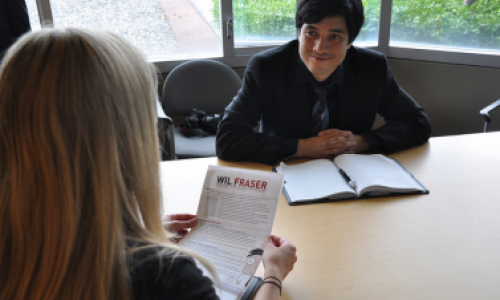
From regulatory organizations to enforcement agencies, the federal government offers many exciting opportunities for students. Having dedicated all four of my co-op work terms to agencies within the federal government, I can say that working for the public service sector is a very rewarding experience. Looking back on my work terms, although they encompassed different jobs and responsibilities, one aspect that remained very similar was the application process. The federal government hiring process is unique in its own ways. Through my experiences of being in several government competition pools, I will share three strategies for tackling the federal job application process effectively.
1. A Key Resource: The Job Description
Whether you are typing your cover letter or preparing for an interview, a key reference material you should constantly refer to is the job description. It may seem like a trivial piece of advice but because the selection process with government jobs has a standardized format, your application must thoroughly demonstrate how you meet each qualification stated within the criteria. By taking time to read the job description thoroughly, you will ensure that you meet the requirements to pass the initial round of evaluation and make the shortlist for an interview.
Government job descriptions generally have two main components - essential qualifications and assets. Essential qualifications can be equated to “must-haves”, meaning that these are mandatory requirements to be considered for the competition pool. Assets are qualifications that are not mandatory but will elevate your competitiveness as a candidate. My advice is, don’t be afraid. Step back and think of how your experience from school, volunteer work, and other extra-curricular activities can be maximized to demonstrate that you meet the requirements. Be creative in demonstrating how your experience as a student relates to the position you are applying for. Volunteering at a charity event may not exactly relate to the nature of the co-op position, but the skills you gained from the experience can be used to showcase your ability and prove how you meet the qualifications. Many students are hesitant to include experience that seems unrelated to the position and hence end up not providing enough information to demonstrate that they meet the requirements. For this reason, I recommend taking note of the job description and ensuring that you meet all of the components within the criteria. When it comes time to proofread your application, use the job posting as a checklist so that you are able to see whether you have met all of the criteria or need to provide more supporting examples.
2. Testing: Get Used to a Standardized Format
Your resume has been submitted and you have been selected for an interview -- now what? Another characteristic of the federal government application process is that it will often involve an exam with a standardized structure. This means that you will not likely be surprised with an evaluation without prior instruction. Rather, whether it is an oral or a written exam, you will usually be provided with very clear expectations. When you are given the exam instructions, take careful note so that you complete every portion of the test. Just like an academic exam, be vigilant in noting questions that involve multiple parts. The standardized testing format means that it is not impossible to prepare for the exam. Though you won’t know the exact questions beforehand, you have access to resources that will help you familiarize yourself with the organization. Every federal governmental department has a website that includes its mandates, missions, and responsibilities. Make use of this as it will be helpful in not only building up your background knowledge but also for making meaningful connections between yourself and the organization. A mock interview is helpful for practicing how you will speak or write about your past experiences, as well as for demonstrating your connection to the organization. So, be sure to plan ahead and book a session with your co-op advisor prior to your interview date.
3. Timing: Be Patient and Flexible
Another aspect that I learned from the federal application process is to be patient and flexible. The federal government hiring process can take a long time. One of my own placements required six months to complete all of the steps in the hiring process. The reasons for the federal government’s lengthier hiring process may be due to funding, which can affect the amount of positions offered at different times of the year. This means that you may pass the interview stage in one semester but may not officially be hired until another. The security clearance could be another reason. As many positions involve working with sensitive and confidential information, federal government jobs usually require a security clearance as a condition of employment. This process alone can take several months to complete. For this reason, be flexible in planning your work and academic terms. Personally, I found it helpful to create multiple course planning documents with different options for courses and work terms in case I heard back from the employer one or several semesters later. In doing this, you can stay one step ahead of course planning and will know which courses to register for if your clearance process takes another semester to process. If the timing doesn’t work out but you have already passed the initial rounds of evaluations, you may be re-considered at a later date, as the same position often re-surfaces when new students are being hired. So, be flexible and patient and don’t feel discouraged if you don’t hear back from the organization right away.
Wrapping Up
Your seeking term can be overwhelming, but know that it will all pay off when you are placed at an organization that you are passionate about. If you are in the midst of applying to a federal government co-op position, I hope these three short tips will help you ease through the application process and get your foot into the doors of the exciting world of public service. Best of luck to you all!













